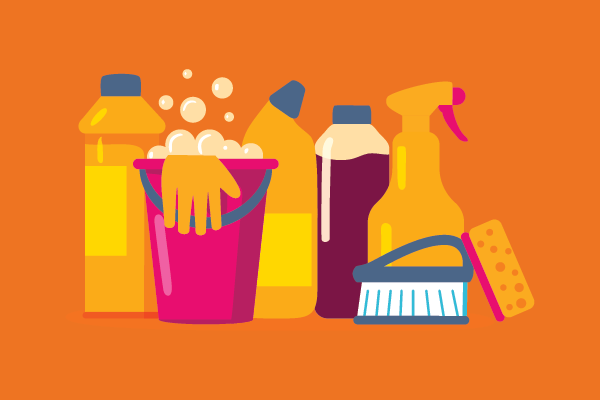
The cleaning industry in the United States is huge. In 2022, findings from Grand View estimated its value at over $370 billion.
They also anticipated that 80% of dual-income households would use a cleaning service in the coming years.
Whether you’re a domestic cleaner or a commercial cleaner, the size of the industry presents a lot of opportunity. And a lot of risk.
With more growth comes more potential for accidents. Property damage, employee injuries, cyber-attacks…
That’s where cleaning insurance comes in.
What insurance should I have as a domestic or commercial cleaner?
Let’s start with the basics before we talk about costs.
Depending on what kind of cleaning business you run, the insurance you need can change.
If you’re a domestic cleaner and you work for yourself, you might only need cleaners’ general liability insurance. It protects you if you damage a client’s property or they’re injured while you’re at their premises. And it’s found to be your fault.
So, that priceless broken vase or slip and fall won’t end up cleaning you out.
If you have any employees, you’ll also need workers’ compensation insurance. Most states require it by law, but it’s a good idea to have it anyway. If someone has an accident while they’re working for you, it covers any lost wages, legal costs, and medical bills.
Other types of insurance, like cyber insurance or employment practices liability insurance, might also be handy.
Cyber insurance protects you if you’re hit by a cyber-attack. It’s especially useful if you store client data or take payments online.
Employment practices liability insurance covers the cost of claims brought by your employees for issues like unfair dismissal, sexual harassment, and discrimination.
How much is cleaning insurance, and what affects its cost?
Cleaning insurance costs will vary depending on the nature of your business. So, it’s difficult to give an exact figure.
Here are a few examples of things that can affect both domestic and commercial cleaning insurance costs:
- Whether or not you have any employees
- The size of your cleaning contracts
- Whether you clean domestic or commercial premises – or both
- Your business’s annual revenue
- The tools and equipment you use
- Whether you rely on digital payments or a website to run your business.
All these things and more are considered when the insurer decides your premium. Depending on your answers, the insurance costs for your cleaning business could go up or down.
The quickest and easiest way to find out how much it’ll cost you is to get a quote.
Is there a difference between domestic and commercial cleaning insurance costs?
The short answer is: yes. Here’s why.
In general, cleaning a commercial premises comes with more risks than cleaning a domestic one.
Businesses often have expensive equipment that, if broken, would lead to a hefty claim. Naturally, this means that you’ll have to pay more for your insurance.
Commercial cleaners will also, generally, have larger cleaning contracts with their clients than their domestic counterparts. So, the average cost of a claim will be quite high.
With that being said, it does depend on the nature of your business.
A large, domestic cleaning company with dozens of staff will obviously pay more for their insurance than a commercial cleaner who works by themselves.
The key thing to remember is that there will be differences between the two in terms of costs.
And regardless of whether you clean domestic or commercial properties (or both), it’s important to get insurance that covers the risks your business faces.
Keep it clean and tidy
Still have some questions about cleaning business insurance costs? Wondering how much insurance would cost for your janitorial or cleaning business?
Our team is here to answer any questions you have. Call us at 978.344.4215. Or if you’re ready to go, get a quote online now.
cleaning and janitorial insurancehelp with Insuranceinsurance costssmall business insurance